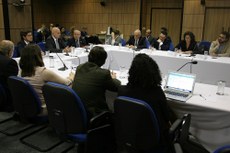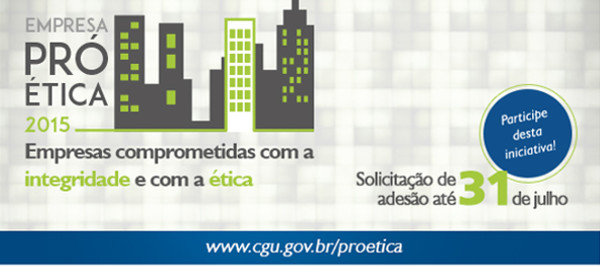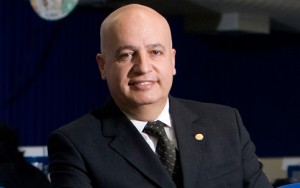by Valdir Simão and Patrícia Audi
There is no way to fight corruption effectively if we do not think of a national construction, of a collective commitment to overcome this complex phenomenon, which considers not only social and cultural aspects, but also the way in which States, companies and individuals face the issue. Its harmful effects directly impact the lives of all those who dream of living in a country where efficient use of public resources can be translated into quality services, schools, hospitals and roads of excellence, and endowed with a vigorous productive sector, generating foreign exchange. and decent work.
There are unquestionable achievements in the fight against corruption since the 1988 Constitution: improvement of instruments of participation and social control, policies of public transparency and access to information, improvement in the institutional capacity to detect misconduct and dismiss employees involved in irregularities, approval of numerous legal instruments of criminalization. However, all these advances, combined with the strengthening of control institutions and mechanisms for detecting illicit acts, will not be sufficient in themselves if we do not also involve civil society and the private sector in this struggle. Preventive aspects and the implementation of integrity programs in companies that manage to mitigate risks and identify deviations are fundamental to the success of the policy to fight corruption.
In December 2010, during the celebrations of the International Day to Combat Corruption, the Comptroller General of the Union (CGU), in partnership with the Ethos Institute for Social Responsibility, instituted the Cadastro Empresa Pró Ética: initiative that seeks to encourage companies to adopt voluntarily mechanisms capable of preventing, detecting and resolving cases of corruption, deviations and fraud, and recognizing the best compliance practices, what we call the business integrity program.
Over time, new partners also believed in this idea and joined the Program, making up today its Steering Committee. They are: National Confederation of Industries (CNI), Brazilian Federation of Banks (Febraban), BM&F Bovespa, Ministry of Development Industry and Commerce (MDIC), Brazilian Trade and Investment Promotion Agency (Apex), Institute of Independent Auditors of Brazil (Ibracon), Brazilian Micro and Small Business Support Service (Sebrae) and, recently, Brazilian Institute of Competitive Ethics (ETCO).
During these years of existence, Pro Ética has been recognized and praised by experts, based on evaluations on the implementation of International Conventions to which Brazil is a signatory. In fact, for the Organization of American States (OAS), it is a “Good Practice” adopted by Brazil The Organization for Economic Cooperation and Development (OECD) considers it as “a positive effort by the Brazilian government” . According to the United Nations Office on Drugs and Crime (United Nations Office on Drugs and Crime - UNODC), "is one of the best examples of incentives for companies to voluntarily invest in anti-corruption programs and other measures that strengthen corporate integrity". External evaluations confirmed our expectations regarding the expected results and showed us that we are on the right track.
Based on the innovative concepts brought by Law 12.846 / 2013 (Anticorruption Law), the Program in 2015 was perfected and now also allows to evaluate integrity programs according to the profile of each company, considering characteristics such as size, sector in which it operates and degree of interaction with the public sector, an analysis even more focused on the reality of the candidate companies. In this perspective, micro and small companies will also be able to integrate the list of Pro Ética companies, as they will be evaluated according to their peculiarities.
To participate, the company must apply within a period established annually. The selection will be made from the responses to the evaluation questionnaire, according to the specifics described in the profile analysis of the company. At the end of each cycle, companies approved by the Management Committee will receive the Pró Ética brand, in an event organized by CGU and other partners. There will also be a publication with the best practices of the year in integrity programs, with a view to disseminating and encouraging the adoption of such measures by other companies, in addition to enhancing the visibility around companies.
The company that receives the “Pró-Ética” brand will be able to use it in its advertising materials, web pages and in its establishments, expanding the public recognition that is given to it by disclosing its name in the annual list of the referred Register.
It is important to note that all companies that participate in the assessment will receive a report with a detailed analysis of their integrity measures. Thus, even that company that is not yet able to be included in Pró Ética's annual list will be able to take advantage of the participation to improve its integrity program, based on the comments that will be part of the referred report or even through knowledge of best practices.
In this way, we intend to integrate this initiative into the annual calendar of the Brazilian business sector and consolidate it, definitively, as a reference for those who want to build and participate in a society whose business relations, especially those with the public sector, are based on integrity and ethics.
The companies win because of the public recognition that Pró Ética promotes, by investing in integrity, by saving resources that could be misappropriated. The governments themselves, because of the security in hiring companies notably concerned with integrity, which becomes a differential in the market. Mainly Brazil wins, in its daily struggle for ethics and against corruption, based on initiatives that promote structural changes in the relationship between the public and the private.
Valdir Simão, Minister of the Comptroller General of the Union
Patrícia Audi, Secretary of Transparency and Corruption Prevention







